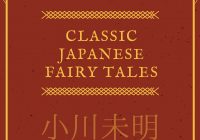Featured translation: “Edgelands” by Haruka Asahi (Part I a)
Yeti of Shosetsu Ninja, a blog that reviews Japanese books, has just released a translation of the first part of the fantasy story “Edgelands” (original title さいはての地), originally written by Haruka Asahi (朝陽遥). There is a synopsis of the story on his site, but it is about a boy who decides to travel across a… Read More »

